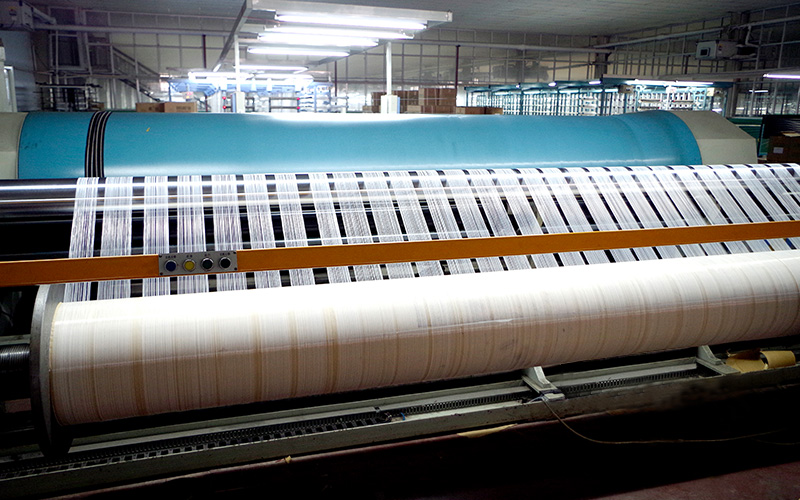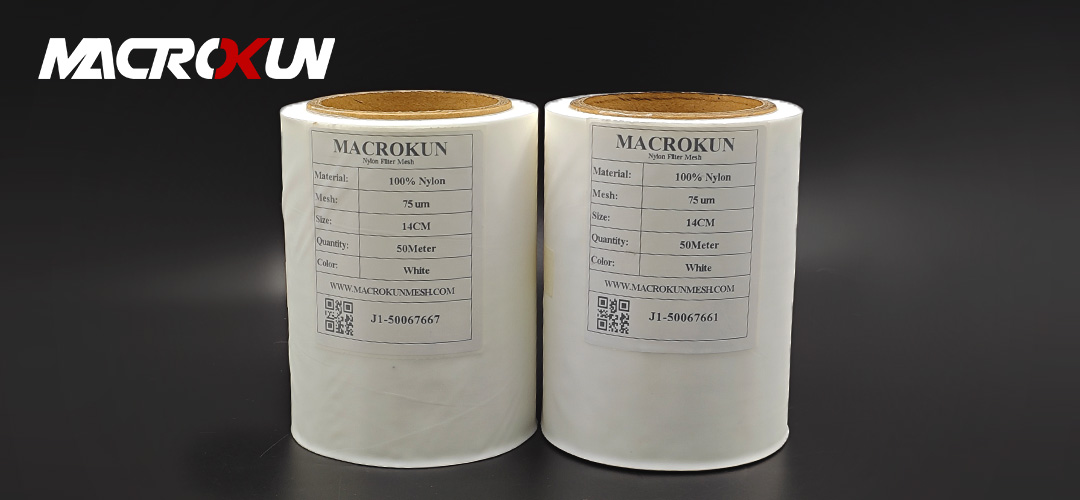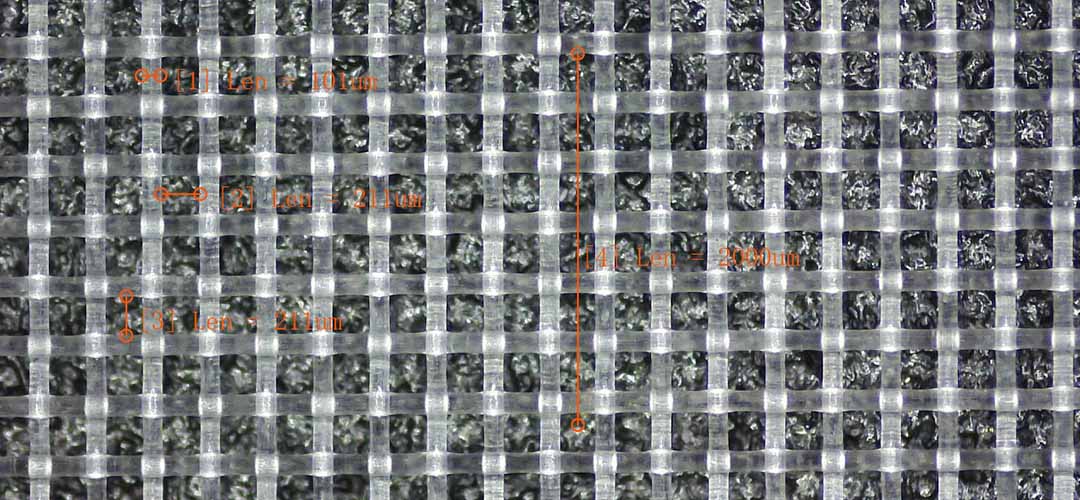When it comes to choosing the best nylon mesh for screening, there are several factors to consider. One of the most important aspects to take into account is the type of nylon mesh material that will best suit your screening needs. Nylon mesh is a versatile material that is commonly used in a variety of industries, including food processing, pharmaceuticals, and mining. Understanding the different types of nylon mesh materials available will help you make an informed decision when selecting the right material for your screening application.
One of the most common types of nylon mesh materials used for screening is monofilament nylon. Monofilament nylon mesh is made from a single strand of nylon fiber, which results in a smooth and uniform surface. This type of nylon mesh is known for its high strength and durability, making it ideal for applications that require a strong and reliable material. Monofilament nylon mesh is also resistant to abrasion and chemicals, making it a popular choice for industries that require a material that can withstand harsh conditions.
Another type of nylon mesh material that is commonly used for screening is multifilament nylon. Multifilament nylon mesh is made from multiple strands of nylon fibers twisted together, which creates a more flexible and pliable material. This type of nylon mesh is often used in applications that require a material with a higher level of flexibility, such as in the medical industry. Multifilament nylon mesh is also known for its excellent filtration properties, making it a popular choice for industries that require a material that can effectively filter out particles and contaminants.
In addition to monofilament and multifilament nylon mesh materials, there are also specialty nylon mesh materials that are designed for specific applications. For example, conductive nylon mesh is a type of nylon mesh material that is infused with conductive fibers, making it ideal for applications that require static dissipation. Conductive nylon mesh is commonly used in industries that require a material that can prevent static buildup, such as in the electronics industry.
When choosing the best nylon mesh material for screening, it is important to consider the specific requirements of your application. Factors such as the level of strength, flexibility, and filtration properties needed will help determine the type of nylon mesh material that is best suited for your screening needs. It is also important to consider the environment in which the nylon mesh will be used, as certain materials may be more resistant to chemicals or abrasion than others.
In conclusion, selecting the best nylon mesh material for screening is an important decision that should not be taken lightly. By understanding the different types of nylon mesh materials available and considering the specific requirements of your application, you can choose a material that will provide the strength, flexibility, and filtration properties needed for your screening needs. Whether you choose monofilament, multifilament, or specialty nylon mesh material, selecting the right material will ensure that your screening application is successful and efficient.
When it comes to choosing the best nylon mesh for screening, one of the most important factors to consider is the mesh size and opening size. Mesh size refers to the number of openings per linear inch in the mesh, while opening size refers to the size of the individual openings in the mesh. Understanding these two factors is crucial in selecting the right nylon mesh for your screening needs.
| Model | Mesh Count (/cm) |
Mesh Count (/inch) |
Thread Dia (um) |
Mesh Opening (um) |
Thickness (um) |
Weight (g/m2) |
| NL4/1950 | 4 | 10 | 550 | 1950 | 1100 | 307 |
| NL5/1500 | 5 | 13 | 500 | 1500 | 1000 | 318 |
| NL6/1267 | 6 | 15 | 400 | 1267 | 800 | 244 |
| NL7/1079 | 7 | 18 | 350 | 1079 | 700 | 218 |
| NL8/900 | 8 | 20 | 350 | 900 | 700 | 249 |
| NL9/861 | 9 | 23 | 250 | 861 | 500 | 143 |
| NL9/811 | 9 | 23 | 300 | 811 | 600 | 206 |
| NL10/750 | 10 | 25 | 250 | 750 | 500 | 159 |
| NL10/700 | 10 | 25 | 300 | 700 | 600 | 229 |
| NL12/583 | 12 | 30 | 250 | 583 | 500 | 191 |
| NL12/533 | 12 | 30 | 300 | 533 | 600 | 274 |
| NL14/514 | 14 | 36 | 200 | 514 | 340 | 142 |
| NL16/425 | 16 | 40 | 200 | 425 | 340 | 160 |
| NL20/350 | 20 | 50 | 150 | 350 | 255 | 113 |
| NL20/300 | 20 | 50 | 200 | 300 | 340 | 200 |
| NL24/267 | 24 | 60 | 150 | 267 | 255 | 135 |
| NL28/237 | 28 | 70 | 120 | 237 | 204 | 101 |
| NL30/213 | 30 | 76 | 120 | 213 | 204 | 110 |
| NL32/213 | 32 | 80 | 100 | 213 | 170 | 80 |
| NL36/178 | 36 | 90 | 100 | 178 | 170 | 90 |
| NL40/150 | 40 | 100 | 100 | 150 | 170 | 100 |
| NL43/153 | 43 | 110 | 80 | 153 | 136 | 70 |
| NL48/128 | 48 | 120 | 80 | 128 | 136 | 77 |
| NL56/119 | 56 | 140 | 60 | 119 | 102 | 50 |
| NL64/96 | 64 | 160 | 60 | 96 | 102 | 58 |
| NL72/89 | 72 | 180 | 50 | 89 | 85 | 45 |
| NL80/75 | 80 | 200 | 50 | 75 | 85 | 50 |
| NL100/57 | 100 | 250 | 43 | 57 | 73 | 46 |
| NL110/48 | 110 | 280 | 43 | 48 | 73 | 52 |
| NL120/48 | 120 | 300 | 35 | 48 | 60 | 37 |
| NL120/40 | 120 | 300 | 43 | 40 | 73 | 55 |
| NL130/42 | 130 | 330 | 35 | 42 | 60 | 40 |
| NL130/34 | 130 | 330 | 43 | 34 | 73 | 61 |
| NL140/36 | 140 | 350 | 35 | 36 | 60 | 43 |
| NL157/25 | 157 | 400 | 43 | 25 | 73 | 74 |
| NL180/20 | 180 | 450 | 39 | 20 | 66 | 68 |
| NL200/15 | 200 | 500 | 39 | 15 | 66 | 76 |
| NL220/10 | 220 | 550 | 39 | 10 | 66 | 84 |
| NL240/5 | 240 | 600 | 39 | 5 | 66 | 91 |
The mesh size of a nylon mesh is typically expressed in terms of the number of openings per linear inch. Common mesh sizes range from 3 to 400, with higher numbers indicating a finer mesh. For example, a mesh size of 3 means there are 3 openings per linear inch, while a mesh size of 400 means there are 400 openings per linear inch. The mesh size you choose will depend on the application and the size of the particles you are trying to screen.
In addition to mesh size, opening size is another important consideration when selecting a nylon mesh for screening. Opening size refers to the size of the individual openings in the mesh and is typically measured in microns. The opening size you choose will depend on the size of the particles you are trying to screen out. For example, if you are screening out large particles, you will need a mesh with larger openings, while if you are screening out smaller particles, you will need a mesh with smaller openings.
When selecting a nylon mesh for screening, it is important to consider both the mesh size and opening size to ensure that the mesh is able to effectively screen out the particles you are targeting. A mesh with too large of openings may allow unwanted particles to pass through, while a mesh with too small of openings may clog easily and reduce screening efficiency.
In general, finer mesh sizes are used for screening out smaller particles, while coarser mesh sizes are used for screening out larger particles. However, the specific mesh size and opening size you choose will depend on the specific requirements of your application. It is important to carefully consider the size of the particles you are trying to screen out and select a mesh that is able to effectively capture those particles.
In addition to mesh size and opening size, it is also important to consider the material and construction of the nylon mesh. Nylon mesh is known for its durability and resistance to abrasion, making it an ideal choice for screening applications. However, not all nylon meshes are created equal, and it is important to select a high-quality mesh that is able to withstand the demands of your application.
In conclusion, when choosing the best nylon mesh for screening, it is important to consider both the mesh size and opening size. By carefully evaluating the size of the particles you are trying to screen out and selecting a mesh that is able to effectively capture those particles, you can ensure that your screening process is efficient and effective. Additionally, selecting a high-quality nylon mesh that is durable and resistant to abrasion will help ensure that your screening equipment lasts for years to come.
When it comes to choosing the best nylon mesh for screening, durability and strength are two key factors to consider. Nylon mesh is a popular choice for screening applications due to its flexibility, resistance to abrasion, and overall durability. However, not all nylon meshes are created equal, and it’s important to select the right type of mesh for your specific screening needs.
One of the first things to consider when evaluating the durability and strength of a nylon mesh is the denier of the material. Denier is a unit of measurement that refers to the thickness of the individual fibers in the mesh. In general, a higher denier indicates a thicker and stronger mesh. For screening applications that require a high level of durability and strength, it’s recommended to choose a nylon mesh with a higher denier.

Another important factor to consider is the weave of the nylon mesh. The weave refers to the pattern in which the fibers are interlaced to create the mesh. Common weave patterns for nylon mesh include plain weave, twill weave, and leno weave. Each weave pattern offers different levels of strength and durability, so it’s important to choose a weave that is suitable for your specific screening needs.
In addition to denier and weave, the coating of the nylon mesh can also impact its durability and strength. Some nylon meshes are coated with a layer of PVC or other materials to enhance their resistance to abrasion, chemicals, and UV exposure. Coated nylon meshes are often more durable and long-lasting than uncoated meshes, making them a good choice for screening applications that require a high level of durability.
When evaluating the durability and strength of a nylon mesh, it’s also important to consider the tension of the mesh. The tension refers to the amount of force applied to stretch the mesh taut. A nylon mesh with high tension is less likely to sag or stretch over time, making it more durable and reliable for screening applications. It’s important to choose a nylon mesh with the appropriate tension for your specific screening needs to ensure optimal performance and longevity.
In conclusion, durability and strength are crucial factors to consider when choosing the best nylon mesh for screening. By evaluating the denier, weave, coating, and tension of the mesh, you can select a high-quality nylon mesh that meets your specific screening requirements. Investing in a durable and strong nylon mesh will not only improve the performance of your screening applications but also save you time and money in the long run. Choose wisely and enjoy the benefits of a reliable and long-lasting nylon mesh for your screening needs.
When it comes to choosing the best nylon mesh for screening, cost and budget considerations play a crucial role in the decision-making process. As a buyer, it is important to weigh the cost of the mesh against the quality and performance it offers. In this article, we will discuss how to navigate the various cost options available and make an informed decision that meets your screening needs while staying within your budget.
One of the first things to consider when evaluating the cost of nylon mesh is the type of material used. Nylon mesh comes in different grades and thicknesses, each with its own price point. While higher-grade nylon mesh may come at a higher cost, it often offers better durability and longevity, making it a worthwhile investment in the long run. On the other hand, lower-grade nylon mesh may be more affordable upfront but may need to be replaced more frequently, leading to higher overall costs over time.
Another factor to consider when evaluating the cost of nylon mesh is the size and quantity needed for your screening application. Larger sizes and higher quantities of mesh will naturally come at a higher cost. It is important to accurately assess your screening needs and determine the appropriate size and quantity of mesh required to avoid overspending on unnecessary materials. Additionally, purchasing nylon mesh in bulk may offer cost savings through volume discounts, so it is worth exploring this option if you have a large screening project.
In addition to the cost of the nylon mesh itself, it is important to consider any additional costs associated with installation, maintenance, and replacement. Some nylon mesh may require specialized tools or equipment for installation, which can add to the overall cost of the screening project. Similarly, regular maintenance and replacement of the mesh may incur additional costs over time. It is important to factor in these ongoing expenses when evaluating the overall cost of the nylon mesh.

When budgeting for nylon mesh screening, it is also important to consider the total cost of ownership over the lifespan of the mesh. While it may be tempting to opt for the cheapest option upfront, it is important to consider the long-term costs associated with lower-quality mesh, such as frequent replacements and repairs. Investing in higher-grade nylon mesh may result in lower overall costs over time due to its durability and longevity.
In conclusion, when choosing the best nylon mesh for screening, cost and budget considerations are important factors to take into account. By evaluating the type of material, size, quantity, installation, maintenance, and total cost of ownership, buyers can make an informed decision that meets their screening needs while staying within their budget. It is important to strike a balance between cost and quality to ensure that the nylon mesh chosen offers the best value for money in the long run.

Pre: The Science Behind Micron Mesh Filter Cloth for Fine Particle Filtration
Next: How Nylon Mesh for Filter Screens Enhances Air and Liquid Filtration

MACROKUN has established long-term and stable cooperative relations with many transportation companies such as China Post, DHL, FEDEX, USPS, UPS, etc. Of course, MACROKUN can also provide air and sea transportation. The powerful logistics system enables all MACROKUN'S Printing Mesh, Filter Mesh and Filter Bags and so on to be easily and efficiently transported to any place. For quotes and inquiries, please email our sales team.





